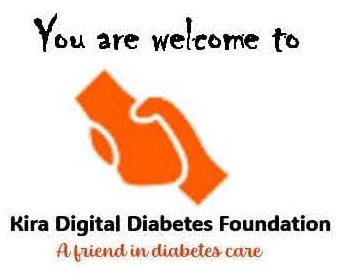Types of Diabetes:
- Type 1 Diabetes: An autoimmune condition where the body’s immune system attacks and destroys the insulin-producing cells in the pancreas, leading to a complete lack of insulin production.
- Type 2 Diabetes: The most common form of diabetes, where the body becomes resistant to insulin or doesn’t produce enough insulin to regulate blood sugar levels effectively.
- Gestational Diabetes: A form of diabetes that develops during pregnancy and typically resolves after childbirth, but increases the risk of developing type 2 diabetes later in life.
Some common signs of diabetes include:
- Thirst and urination: Excessive thirst and frequent urination
- Hunger: Feeling very hungry, even when eating
- Fatigue: Extreme fatigue or weakness
- Vision: Blurred or distorted vision
- Weight loss: Unintended weight loss, even when eating more
- Skin: Slow-healing cuts or bruises, discoloration, or velvety darker areas on the skin
- Other: Tingling, pain, or numbness in the hands or feet, dry mouth, frequent skin or vaginal yeast infections, or irritability
Risk Factors:
- Family history of diabetes
- Being overweight or obese
- Sedentary lifestyle
- Increasing age
- Certain ethnic backgrounds
- Poor diet
Global Prevalence:
According to the International Diabetes Federation (IDF) in 2021, approximately 537 million adults (20-79 years) were living with diabetes. The total number of people living with diabetes is projected to rise to 643 million by 2030 and 783 million by 2045.
Prevalence in Africa:
In Africa, the prevalence of diabetes is rising rapidly, with an estimated 24 million adults (20-79 years) living with the condition in 2021; this represents 1 in 22 adults in the region, including 13 million undiagnosed cases and 1 in 8 live births affected by hyperglycaemia in pregnancy.
Prevalence in Rwanda:
The prevalence of diabetes among adults aged 20-79 in Rwanda was estimated to be 3.9% in 2019, according to the IDF.
Diagnosis:
- Fasting blood glucose tests
- Oral glucose tolerance tests
- Hemoglobin A1c (HbA1c) tests
Treatment:
- Lifestyle modifications (healthy diet and regular physical activity)
- Medication (insulin injections, oral medications, or other therapies)
Complications (if unmanaged):
- Cardiovascular diseases
- Nerve damage (neuropathy)
- Kidney disease (nephropathy)
- Eye damage (retinopathy)
- Foot problems
- Increased risk of infections
Proper management and control of blood sugar levels are essential to prevent or delay these complications and improve overall health outcomes.
